Why you need to hire disabled talent
This article contains affiliate links. We may earn a small commission on items purchased through this article, but that does not affect our editorial judgement.
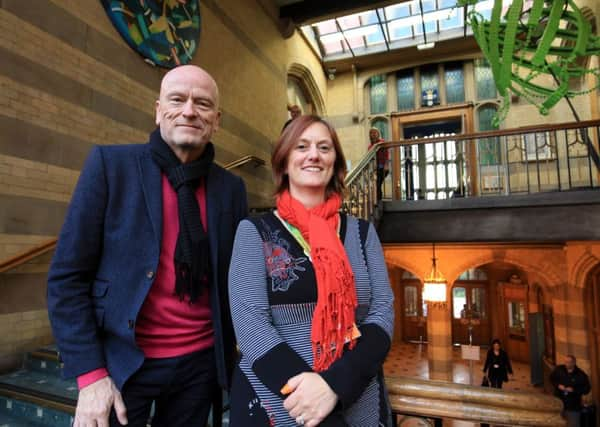

Click this link or call 0114 2760039.
BEING ABLE TO WORK AND FEEL VALUED IS VITAL
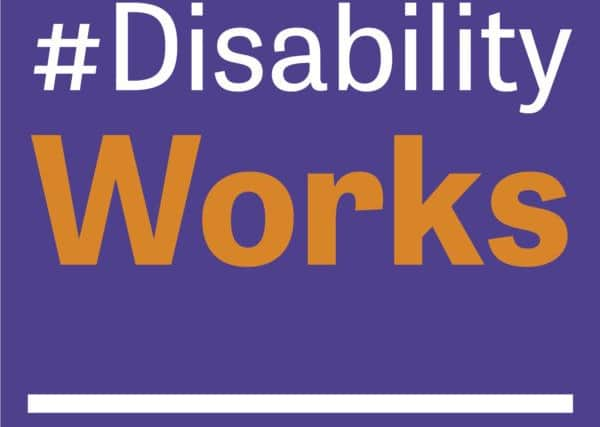

Academic tells how working life has changed during 20-year struggle with mental illness
By Prof Brendan Stone, director of learning and teaching
The School of English
The University of Sheffield
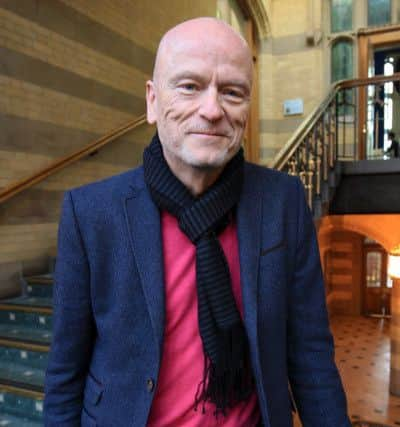

Thinking about work and mental health, I am reminded of how fortunate I am – and how this good fortune is not shared by many people who have a similar background to mine.
Advertisement
Hide AdAdvertisement
Hide AdI’ve worked as an academic at the University of Sheffield since 2004, and have never hidden, nor felt I had to hide, my lengthy history of mental health difficulties.
Indeed, I have been able to combine my experience and personal knowledge with my academic understandings: developing educational opportunities for people with mental health problems; helping to develop better support systems for staff and students; speaking at conferences and events; working with the NHS and other statutory agencies on various projects to try to improve the experience of people using services.
Not only do I not have to hide myself, I have felt that my experience has been valued – that people recognise it gives me skills and insights which are valuable.
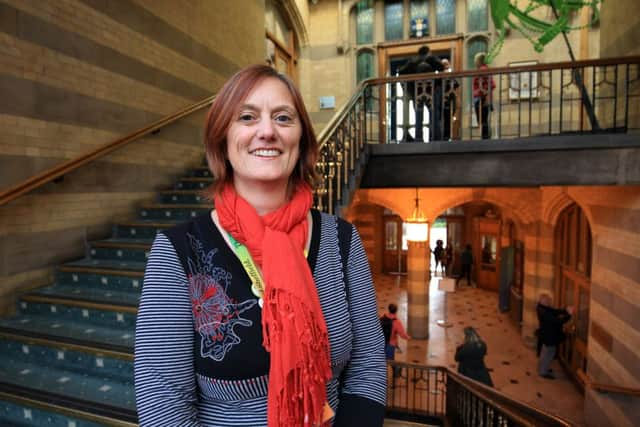

I still live with mental health problems, and assume I always will. But my life today appears very different from the 20-year period when I was usually too unwell to work – or, if I could work, only being able to find low-paid, insecure temporary jobs; a long way from trying to survive on disability benefits; a long way from periods of homelessness, or the insecurity of poor quality housing.
Advertisement
Hide AdAdvertisement
Hide AdAs I said, I am fortunate to not still be experiencing those things today. But many of our fellow citizens are. The issue of employment for people with mental health difficulties is a critical one – and perhaps even more important is how we support people who are not able to work.
It is lonely and frightening to feel you have to hide your reality in order to get work, or not get fired. It is terrifying to be disbelieved when you need to claim benefits to simply survive; or there are no health and care services available to you.
Being able to work and feel valued and supported, contribute something to the world, and make meaningful connections with other people has been vital for my wellbeing.
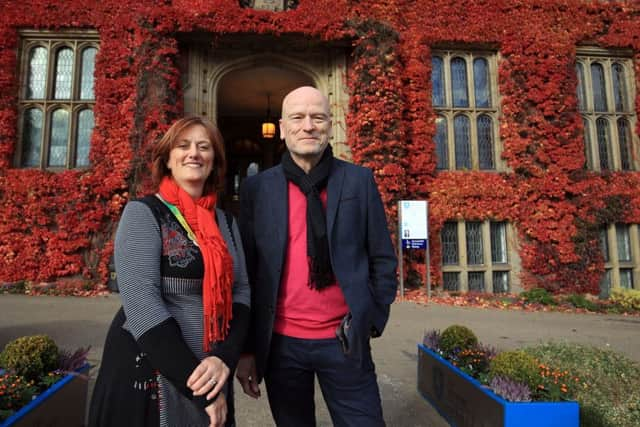

Having enough money so I don’t have to worry about bills and food, can have a holiday and go out with friends – has been even more important.
Advertisement
Hide AdAdvertisement
Hide AdWhat are society and employers losing by not finding ways to help people build better lives – whether that involves work or not?
Employers miss out on a huge pool of talent and knowledge and society feels a darker, more insecure place for all of us.
Any one of us may experience physical illness or mental health problems. Wouldn’t it be good to feel that we inhabit a society in which decent support, respect and care will be available to us if we do?
A PLACE TO WORK THAT’S SUPPORTIVE
“If you feel that you can bring your whole self to work, you will be inspired to do your best,” says Julie Campbell, HR manager at the University of Sheffield.
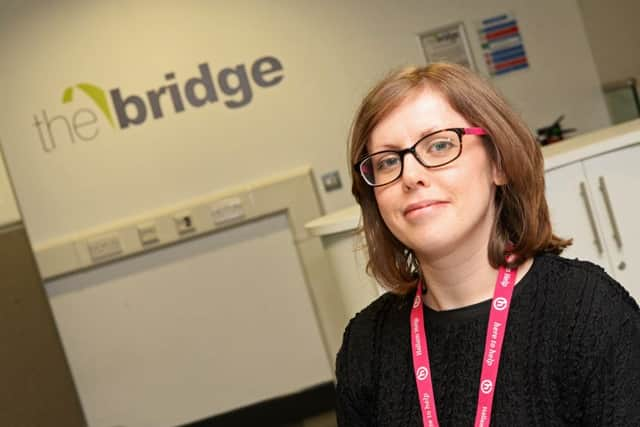

Advertisement
Hide AdAdvertisement
Hide AdThe University places health at the heart of work and encourages all staff to look after their wellbeing. And it is committed to developing an inclusive environment because it believes diversity boosts research and teaching and is beneficial for staff.
Ms Campbell added: “We have a strong policy framework to support staff with disabilities or mental ill-health, and have a number of initiatives which we work closely on with our staff and disability network.
“This network brings together members of the university community with a physical impairment, mental ill-health, developmental condition, or any other condition covered by disability legislation in an informal and relaxed way.
“It is open to all members of staff with experience of, or an interest in, these areas to meet, gain or offer support, participate in social activities, and share experiences.
Advertisement
Hide AdAdvertisement
Hide Ad“In 2014 we signed the Time-to-Change pledge, which is a public statement of our aspirations to tackle mental health and the stigma that surrounds it. As part of this we run ‘Tea and Talk’ sessions for staff, to raise awareness of mental health in a relaxed environment, over a cup of tea and cake. The sessions, which also promote emotional wellbeing, have been extremely well-attended and positively received by staff.”
For tailored recruitment support, go to: Click this link
Or call 0114 2760039.
SHEFFIELD HALLAM UNIVERSITY: Be open and understand that every person is different
It’s important to Vic that she’s not just treated as a tick-box exercise.
“I want the focus to be on my contributions and attributes rather than any restrictions or the resources I need in place,” she says.
Advertisement
Hide AdAdvertisement
Hide Ad“That’s what I get from my current job at Sheffield Hallam University. I’m treated like a member of the team and my manager has been genuinely caring and supportive for me as a person.”
Victoria Ishaq is a graduate of the University or Lincoln and now works part time at the city university.
She also lives with myalgia encephalitis – a debilitating illness which causes severe fatigue, painful muscles and joints, disordered sleep, gastric disturbances and poor memory and concentration.
“I really enjoy being at work,” she says.
“I find my mental and physical health improves when I have a focus to my day. I really enjoy being part of a team and having that face-to-face interaction. I know that some people with disabilities worry about how they would fit in the workplace, but I would say, don’t worry – just go for it. Look into what adaptations you may need within the workplace as this can help build your confidence. This way, when you do find work, you can be prepared to inform people who may have little knowledge of your difficulties.
Advertisement
Hide AdAdvertisement
Hide Ad“Since leaving university I have worked within recruitment, human resources, sales and customer service. I started my current role six months ago and, so far, it’s been a great experience.
“For employers who are considering taking on someone with a disability, I would say be open, and understand that every person is different. Two people with the same condition may have very different needs, and not everyone declares a disability at application stage.
“Once they are employed, make sure the person knows they can talk to you whenever. This way you can build up a good relationship with your employee which makes talking about any additional support needed easier.”
Claire Ridall is head of management services in library and student support at Sheffield Hallam University. She hired Vic to be part of her seven-person team six months ago.
“Vic is a great asset,” says Claire.
Advertisement
Hide AdAdvertisement
Hide Ad“From the beginning I’ve encouraged Vic to talk about her disability and ongoing health to make sure she has the support she needs to do her job.
“From my perspective, it has been extremely important to keep an ongoing dialogue between us. Her contribution to the team has been significant and at no point have her adjustments been a problem. It’s been lovely to see her confidence grow as she has settled into her role.”
For tailored recruitment support, go to: Click this link
Or call 0114 2760039.
EMPLOYER OF THE WEEK: ROYAL MAIL
Royal Mail leads the way in realising the potential of disabled workers
More and more of Sheffield’s top businesses are realising the potential of disabled talent in their workforce – and Royal Mail is leading the way.
Advertisement
Hide AdAdvertisement
Hide AdSusan Tomlinson has worked for Royal Mail as a recruitment advisor for more than 12 years.
She says she’s faced many challenges throughout her career but has not let anything get in her way to achieve her goals.
“I’m a wheelchair user with a disability from birth, but didn’t let that stop me going after the job I really wanted at Royal Mail, and so I was really pleased when I was offered it.
“Being in a job is a no-brainer. It gives you self-worth and the ability to control your own finances. You are considered equal to your peers and have the freedom to do whatever you want in life.
Advertisement
Hide AdAdvertisement
Hide Ad“We are no different to any other employee really, except we are probably more loyal given the additional challenges of finding a job.”
Kay Clements, diversity inclusion manager at Royal Mail has first-hand experience of working with disabled people.
She said: “Disabled people are an integral part of our workforce and should be in any organisation. Our experiences have been really positive.”
Kay dispels some of the myths around recruiting people with disabilities, adding: “I think some employers may feel there’s going to be an issue about sick absence, but that’s not the case at all. It makes a real difference to be a disability employer and if you’re worried about going it alone there’s help and support available like the Access to Work programme which has helped many employees stay in work through small adjustments.
Advertisement
Hide AdAdvertisement
Hide Ad“To other employers considering employing disabled people I’d say it will add another dimension to you workforce.”
The results surely speak for themselves.
Royal Mail employs about 139,000 people nationally, of which about eight per cent have declared to have a disability.
Royal Mail has a long- established history of being an equal opportunities employer.
Kay added: “With the extra support, we’re looking forward to employing more disabled talent here at Royal Mail.”
For tailored recruitment support, go to: Click this link
Or call 0114 2760039.